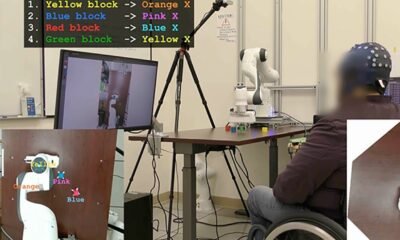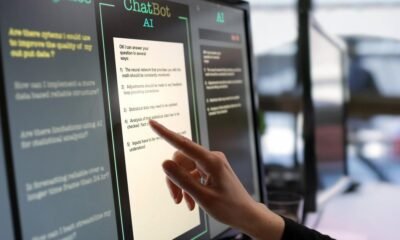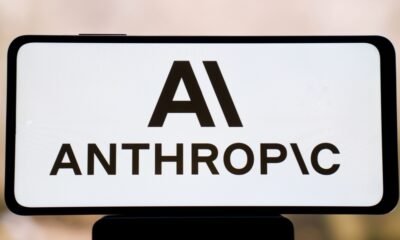AI Research
A researcher’s view on using AI to become a better writer
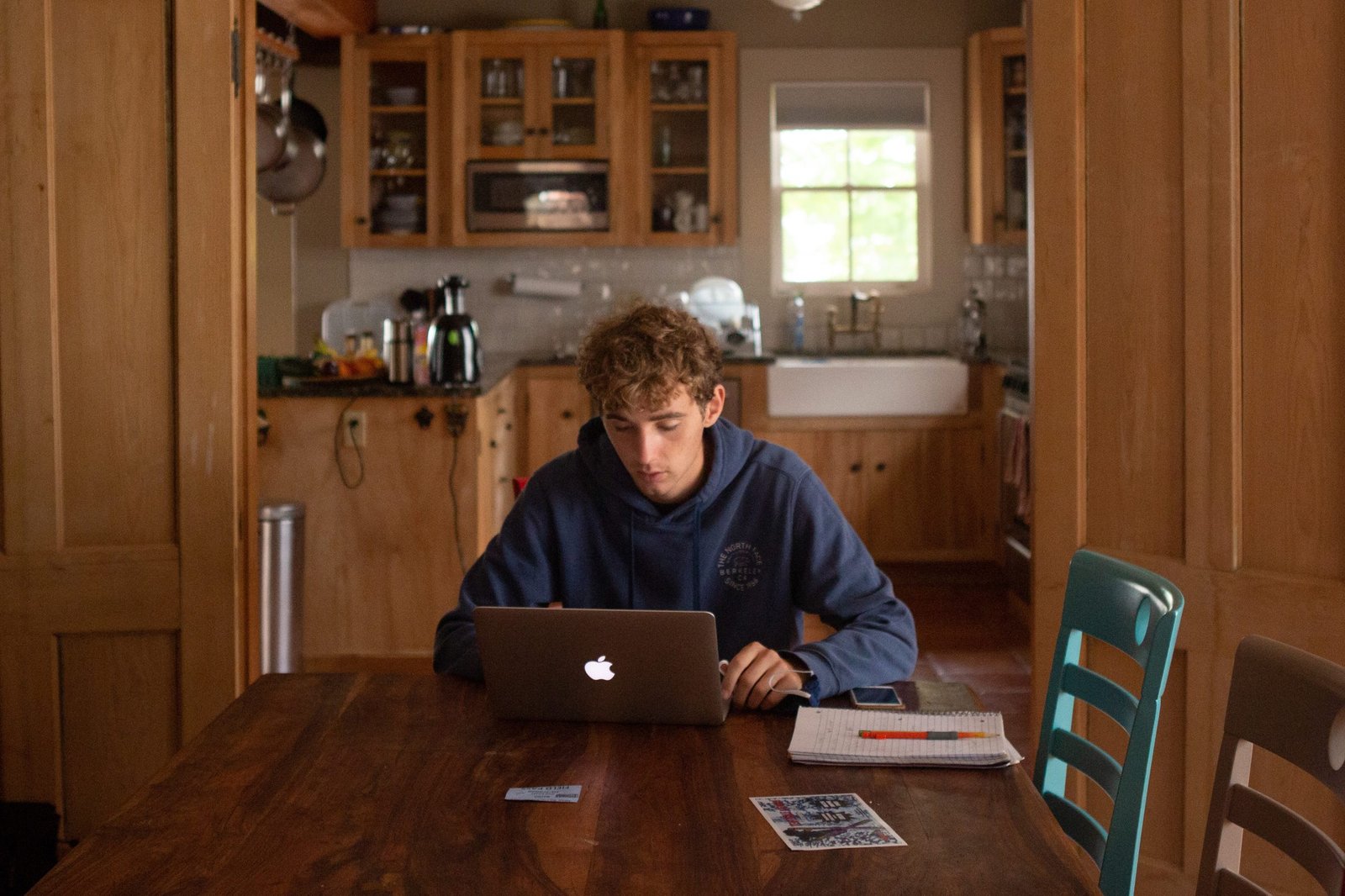
Writing can be hard, equal parts heavy lifting and drudgery. No wonder so many students are turning to the time-saving allure of ChatGPT, which can crank out entire papers in seconds. It rescues them from procrastination jams and dreaded all-nighters, magically freeing up more time for other pursuits, like, say … doomscrolling.
Of course, no one learns to be a better writer when someone else (or some AI bot) is doing the work for them. The question is whether chatbots can morph into decent writing teachers or coaches that students actually want to consult to improve their writing, and not just use for shortcuts.
Maybe.
Jennifer Meyer, an assistant professor at the University of Vienna in Austria, has been studying how AI bots can be used to improve student writing for several years. In an interview, she explained why she is cautious about the ability of AI to make us better writers and is still testing how to use the new technology effectively.
All in the timing
Meyer says that just because ChatGPT is available 24/7 doesn’t mean students should consult it at the start of the writing process. Instead, Meyer believes that students would generally learn more if they wrote a first draft on their own.
That’s when AI could be most helpful, she thinks. With some prompting, a chatbot could provide immediate writing feedback targeted to each students’ needs. One student might need to practice writing shorter sentences. Another might be struggling with story structure and outlining. AI could theoretically meet an entire classroom’s individual needs faster than a human teacher.
Related: Our free weekly newsletter alerts you to what research says about schools and classrooms.
In Meyer’s experiments, she inserted AI only after the first draft was done as part of the revision process. In a study published in 2024, she randomly assigned 200 German high school students to receive AI feedback after writing a draft of an essay in English. Their revised essays were stronger than those of 250 students who were also told to revise, but didn’t get help from AI.
In surveys, those with AI feedback also said they felt more motivated to rewrite than those who didn’t get feedback. That motivation is critical. Often students aren’t in the mood to rewrite, and without revisions, students can’t become better writers.
Meyer doesn’t consider her experiment proof that AI is a great writing teacher. She didn’t compare it with how student writing improved after human feedback. Her experiment compared only AI feedback with no feedback.
Most importantly, one dose of AI writing feedback wasn’t enough to elevate students’ writing skills. On a second, fresh essay topic, the students who had previously received AI feedback didn’t write any better than the students who hadn’t been helped by AI.
Related: AI writing feedback ‘better than I thought,’ top researcher says
It’s unclear how many rounds of AI feedback it would take to boost a student’s writing skills more permanently, not just help revise the essay at hand.
And Meyer doesn’t know whether a student would want to keep discussing writing with an AI bot over and over again. Maybe students were willing to engage with it in this experiment because it was a novelty, but could soon tire of it. That’s next on Meyer’s research agenda.
A viral MIT study
A much smaller MIT study published earlier this year echoes Meyer’s theory. “Your Brain on ChatGPT” went viral because it seemed to say that using ChatGPT to help write an essay made students’ brains less engaged. Researchers found that students who wrote an essay without any online tools had stronger brain connectivity and activity than students who used AI or consulted Google to search for source materials. (Using Google while writing wasn’t nearly as bad for the brain as AI.)
Although those results made headlines, there was more to the experiment. The students who initially wrote an essay on their own were later given ChatGPT to help improve their essays. That switch to ChatGPT boosted brain activity, in contrast to what the neuroscientists found during the initial writing process.
Related: University students offload critical thinking, other hard work to AI
These studies add to the evidence that delaying AI a bit, after some initial thinking and drafting, could be a sweet spot in learning. That’s something researchers need to test more.
Still, Meyer remains concerned about giving AI tools to very weak writers and to young children who haven’t developed basic writing skills. “This could be a real problem,” said Meyer. “It could be detrimental to use these tools too early.”
Cheating your way to learning?
Meyer doesn’t think it’s always a bad idea for students to ask ChatGPT to do the writing for them.
Just as young artists learn to paint by copying masterpieces in museums, students might learn to write better by copying good writing. (The late great New Yorker editor John Bennet taught Jill to write this way. He called it “copy work” and he encouraged his journalism students to do it every week by copying longhand the words of legendary writers, not AI.)
Meyer suggests that students ask ChatGPT to write a sample essay that meets their teacher’s assignment and grading criteria. The next step is key. If students pretend it’s their own piece and submit it, that’s cheating. They’ve also offloaded cognitive work to technology and haven’t learned anything.
But the AI essay can be an effective teaching tool, in theory, if students study the arguments, organizational structure, sentence construction and vocabulary before writing a new draft in their own words. Ideally, the next assignment should be better if students have learned through that analysis and internalized the style and techniques of the model essay, Meyer said.
“My hypothesis would be as long as there’s cognitive effort with it, as long as there’s a lot of time on task and like critical thinking about the output, then it should be fine,” said Meyer.
Reconsidering praise
Everyone likes a compliment. But too much praise can drown learning just as too much water can keep flowers from blooming.
ChatGPT has a tendency to pour the praise on thick and often begins with banal flattery, like “Great job!” even when a student’s writing needs a lot of work. In Meyer’s test of whether AI feedback can improve students’ writing, she intentionally told ChatGPT not to start with praise and instead go straight to constructive criticism.
Her parsimonious approach to praise was inspired by a 2023 writing study about what motivates students to revise. The study found that when teachers started off with general praise, students were left with the false impression that their work was already good enough so they didn’t put in the extra effort to rewrite.
In Meyer’s experiment, the praise-free feedback was effective in getting students to revise and improve their essays. But she didn’t set up a direct competition between the two approaches — praise-free vs. praise-full — so we don’t know for sure which is more effective when students are interacting with AI.
Being stingy with praise rubs real teachers the wrong way. After Meyer removed praise from the feedback, teachers told her they wanted to restore it. “They wondered about why the feedback was so negative,” Meyer said. “That’s not how they would do it.”
Meyer and other researchers may one day solve the puzzle of how to turn AI chatbots into great writing coaches. But whether students will have the willpower or desire to forgo an instantly written essay is another matter. As long as ChatGPT continues to allow students to take the easy way out, it’s human nature to do so.
Shirley Liu is a graduate student in education at Northwestern University. Liu reported and wrote this story along with The Hechinger Report’s Jill Barshay.
Contact staff writer Jill Barshay at 212-678-3595, jillbarshay.35 on Signal, or barshay@hechingerreport.org.
This story about using AI to become a better writer was produced by The Hechinger Report, a nonprofit, independent news organization focused on inequality and innovation in education. Sign up for Proof Points and other Hechinger newsletters.
AI Research
Spotlab.ai hiring AI research scientist for multimodal diagnostics and global health
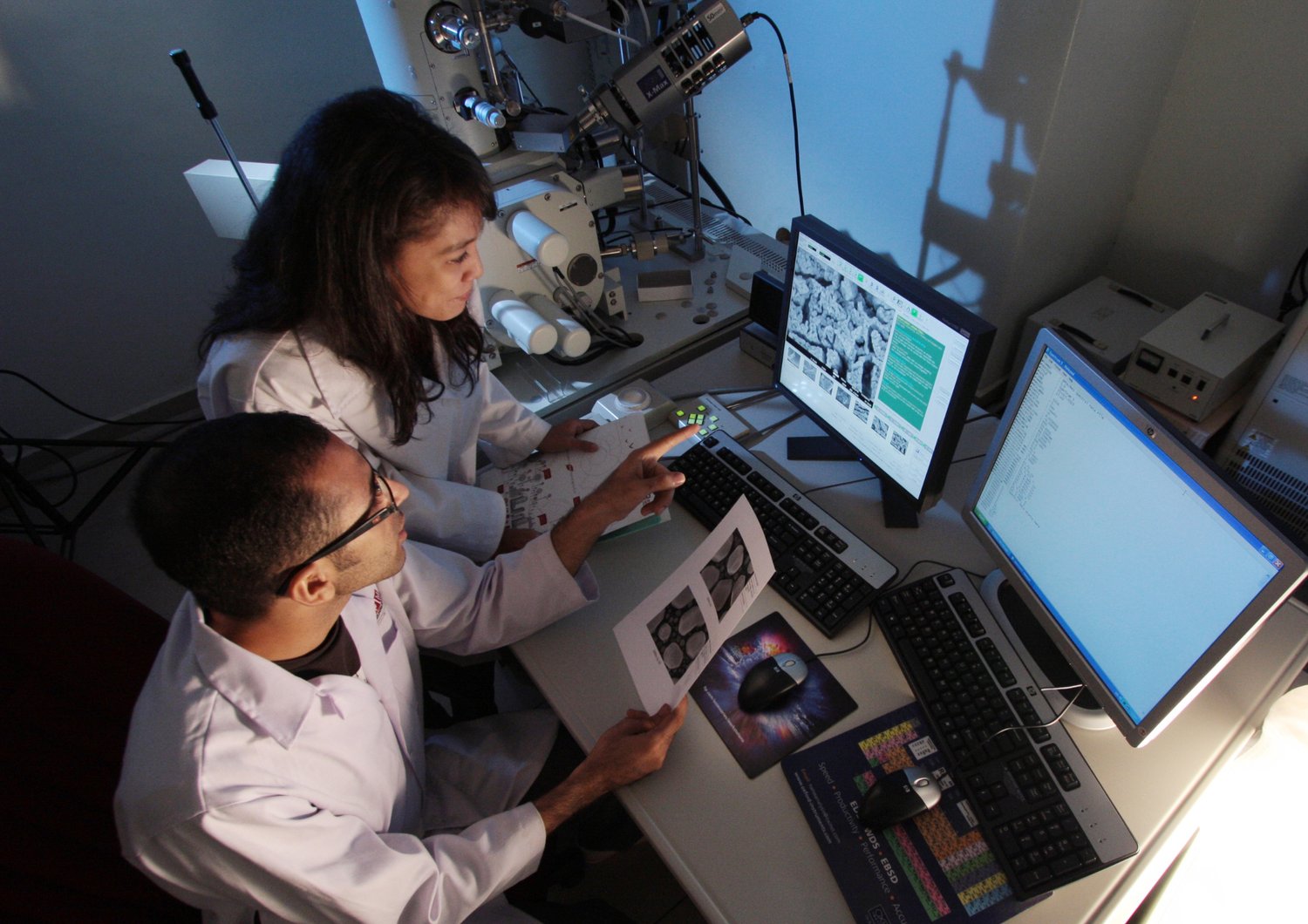
In a LinkedIn post, Miguel Luengo-Oroz, co-founder and CEO of Spotlab.ai, confirmed the company is hiring an Artificial Intelligence Research Scientist. The role is aimed at early career researchers, postdoctoral candidates, and recent PhD graduates in AI.
Luengo-Oroz writes: “Are you a young independent researcher, postdoc, just finished your PhD (or on the way there) in AI and wondering what’s next? If you’re curious, ready to tackle tough scientific and technical challenges, and want to build AI for something that matters, this might be for you.”
Spotlab.ai targets diagnostics role with new hire
The position will focus on building and deploying multimodal AI solutions for diagnostics and biopharma research. Applications include blood cancers and neglected tropical diseases.
The scientist will be expected to organize and prepare biomedical datasets, train and test AI models, and deploy algorithms in real-world conditions. The job description highlights interaction with medical specialists and product managers, as well as drafting technical documentation. Scientific publications are a priority, with the candidate expected to contribute across the research cycle from experiment planning to peer review.
Spotlab.ai is looking for candidates with experience in areas such as biomedical image processing, computer vision, NLP, video processing, and large language models. Proficiency in Python and deep learning frameworks including TensorFlow, Keras, and PyTorch is required, with GPU programming experience considered an advantage.
Company positions itself in global health AI
Spotlab.ai develops multimodal AI for diagnostics and biopharma research, with projects addressing gaps in hematology, infectious diseases, and neglected tropical diseases. The Madrid-based startup team combines developers, engineers, doctors, and business managers, with an emphasis on gender parity and collaboration across disciplines.
CEO highlights global mission
Alongside the job listing, Luengo-Oroz underscored the company’s broader mission. A former Chief Data Scientist at the United Nations, he has worked on technology strategies in areas ranging from food security to epidemics and conflict prevention. He is also the inventor of MalariaSpot.org, a collective intelligence videogame for malaria diagnosis.
Luengo-Oroz writes: “Take the driver’s seat of our train (not just a minion) at key stages of the journey, designing AI systems and doing science at Champions League level from Madrid.”
AI Research
YARBROUGH: A semi-intelligent look at artificial intelligence – Rockdale Citizen
AI Research
Rice University creative writing course introduced Artificial Intelligence, AI
Courtesy Brandi Smith
Rice is bringing generative artificial intelligence into the creative writing world with this fall’s new course, “ENGL 306: AI Fictions.” Ian Schimmel, an associate teaching professor in the English and creative writing department, said he teaches the course to help students think critically about technology and consider the ways that AI models could be used in the creative processes of fiction writing.
The course is structured for any level of writer and also includes space to both incorporate and resist the influence of AI, according to its description.
“In this class, we never sit down with ChatGPT and tell it to write us a story and that’s that,” Schimmel wrote in an email to the Thresher. “We don’t use it to speed up the artistic process, either. Instead, we think about how to incorporate it in ways that might expand our thinking.”
Schimmel said he was stunned by the capabilities of ChatGPT when it was initially released in 2022, wondering if it truly possessed the ability to write. He said he found that the topic generated more questions than answers.
The next logical step, for Schimmel, was to create a course centered on exploring the complexities of AI and fiction writing, with assigned readings ranging from New York Times opinion pieces critical of its usage to an AI-generated poetry collection.
Schimmel said both students and faculty share concerns about how AI can help or harm academic progress and potentially cripple human creativity.
“Classes that engage students with AI might be some of the best ways to learn about what these systems can and cannot do,” Schimmel wrote. “There are so many things that AI is terrible at and incapable of. Seeing that firsthand is empowering. Whenever it hallucinates, glitches or makes you frustrated, you suddenly remember: ‘Oh right — this is a machine. This is nothing like me.”
“Fear is intrinsic to anything that shakes industry like AI is doing,” Robert Gray, a Brown College senior, wrote in an email to the Thresher. “I am taking this class so that I can immerse myself in that fear and learn how to navigate these new industrial landscapes.”
The course approaches AI from a fluid perspective that evolves as the class reads and writes more with the technology, Schimmel said. Their answers to the complex ethical questions surrounding AI usage evolve with this.
“At its core, the technology is fundamentally unethical,” Schimmel wrote. “It was developed and enhanced, without permission, on copyrighted text and personal data and without regard for the environment. So in that failed historical context, the question becomes: what do we do now? Paradoxically, the best way for us to formulate and evidence arguments against this technology might be to get to know it on a deep and personal level.”
Generative AI is often criticized for its ethicality, such as the energy output and water demanded for its data centers to function or how the models are trained based on data sets of existing copyrighted works.
Amazon and Google-backed Anthropic recently settled a class-action lawsuit with a group of U.S. authors who accused the company of using millions of pirated books to train its Claude chatbot to respond to human prompts.
With the assistance of AI, students will be able to attempt large-scale projects that typically would not be possible within a single semester, according to the course overview. AI will accelerate the writing process for drafting a book outline, and students can “collaborate” with AI to write the opening chapters of a novel for NaNoWriMo, a worldwide writing event held every November where participants would produce a 50,000-word first draft of a novel.
NaNoWriMo, short for National Novel Writing Month, announced its closing after more than 20 years in spring 2025. It received widespread press coverage for a statement released in 2024 that said condemnation of AI in writing “has classist and ableist undertones.” Many authors spoke out against the perceived endorsement of using generative AI for writing and the implication that disabled writers would require AI to produce work.
Each weekly class involves experimentation in dialogues and writing sessions with ChatGPT, with Schimmel and his students acknowledging the unknown and unexplored within AI and especially the visual and literary arts. Aspects of AI, from creative copyrights to excessive water usage to its accuracy as an editor, were discussed in one Friday session in the Wiess College classroom.
“We’re always better off when we pay attention to our attention. If there’s a topic (or tech) that creates worry, or upset, or raises difficult questions, then that’s a subject that we should pursue,” Schimmel wrote. “It’s in those undefined, sometimes uncomfortable places where we humans do our best, most important learning.”
-

 Business2 weeks ago
Business2 weeks agoThe Guardian view on Trump and the Fed: independence is no substitute for accountability | Editorial
-
Tools & Platforms4 weeks ago
Building Trust in Military AI Starts with Opening the Black Box – War on the Rocks
-

 Ethics & Policy1 month ago
Ethics & Policy1 month agoSDAIA Supports Saudi Arabia’s Leadership in Shaping Global AI Ethics, Policy, and Research – وكالة الأنباء السعودية
-

 Events & Conferences4 months ago
Events & Conferences4 months agoJourney to 1000 models: Scaling Instagram’s recommendation system
-

 Jobs & Careers2 months ago
Jobs & Careers2 months agoMumbai-based Perplexity Alternative Has 60k+ Users Without Funding
-

 Podcasts & Talks2 months ago
Podcasts & Talks2 months agoHappy 4th of July! 🎆 Made with Veo 3 in Gemini
-

 Education2 months ago
Education2 months agoMacron says UK and France have duty to tackle illegal migration ‘with humanity, solidarity and firmness’ – UK politics live | Politics
-

 Education2 months ago
Education2 months agoVEX Robotics launches AI-powered classroom robotics system
-

 Funding & Business2 months ago
Funding & Business2 months agoKayak and Expedia race to build AI travel agents that turn social posts into itineraries
-

 Podcasts & Talks2 months ago
Podcasts & Talks2 months agoOpenAI 🤝 @teamganassi






